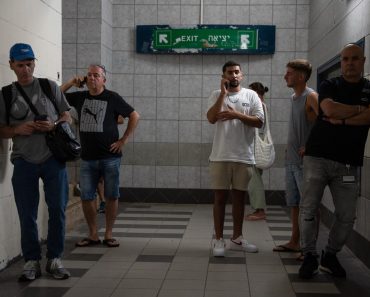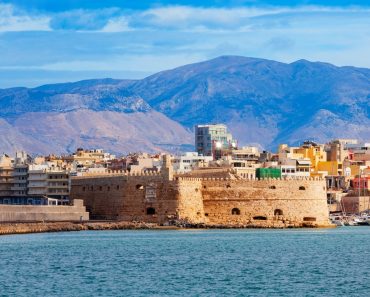Dozens of Greek and international students in the US are canceling their plans to travel to Greece this summer, following strict recommendations from top American universities to avoid summer travel for fear of not being able to return due to visa issuance restrictions.
In the heart of Los Angeles, just a few blocks from the glitz of Hollywood and the chaotic scenes of recent days, Vasilis Magoulianitis — a 30-year-old Greek student — describes to us the new reality thousands of foreign students in the United States are facing.
Speaking calmly but with evident concern for the future, he explains to protothema.gr reporters Vicky Dalli and Marios Lazaridis (Greeks living in Los Angeles) why, for the first time since leaving Greece, he will not return home for summer vacation this year.
Vasilis has been living in Los Angeles for the past five years. He left Greece to pursue a dream: a PhD in electrical engineering, focusing on developing medical applications using artificial intelligence. His goal is to contribute to the advancement of new cancer diagnosis methods.
“Five Years Ago, Everything Was Simple”
As he recalls, the process of obtaining his student visa when he first arrived in the US was almost routine:
“All the procedures were very simple once I had the invitation from the university. All I had to do was go to the US embassy in Athens and get a visa, which was issued within one or two weeks,” he says.
Today, however, the landscape has changed dramatically.
“Everything is changing — both for student visas and for work permits, which are also very important. For example, all embassies have frozen visa issuance procedures for students,” he emphasizes.
Vasilis cites the case of Harvard University as a typical example:
“We saw what happened with Harvard, where the government banned accepting new foreign students for the coming academic year,” he says. This decision was based on a measure imposed by then-US President Donald Trump, prohibiting the entry of new foreign students to Harvard and other institutions. However, the US judiciary intervened and suspended the measure.
The biggest concern, however, involves the so-called “grace period.”
“Until now, we had 90 days to find a job after completing our studies. Now, there’s talk that this period may be shortened, causing additional anxiety for all of us,” he explains.
Summer Without Return
The most significant consequence of the uncertainty is the absence of travel to Greece.
“Yes, the university has strongly recommended that we not travel outside the US this year. That’s why I won’t be traveling to Greece this summer. Other Greek fellow students are saying the same thing. All our plans have been put on hold, and we’re all just waiting,” he concludes.
Undoubtedly, daily life in Los Angeles has become increasingly difficult. From the pandemic to wildfires and now immigration protests, the city seems less and less welcoming each year. And amid all this, young people who left Greece to study and advance their careers feel increasingly trapped in a system that is changing in unpredictable ways.
Official Warning: “Do Not Travel”
Vasilis’ concerns are not unfounded. As stated in an official memo from the Visa Services offices of American universities:
“We strongly recommend that individuals in F-1 status who do not have a valid visa stamp avoid international travel. Such individuals risk being stranded outside the US for months if they attempt to travel abroad during this period.”
The US Department of State (USDOS) itself has temporarily suspended the scheduling of new F-1 visa appointments at consulates worldwide, as part of stricter monitoring — including the review of social media accounts of visa applicants.

Ask me anything
Explore related questions







